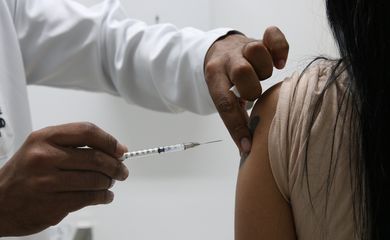Campaign warns about return of poliomyelitis

The Brazilian Society of Immunizations (SBIm) launched on Monday (Aug. 22) the campaign Poliomyelitis - The Threat is Back, to boost vaccination against the disease. The campaign is being held by the Ministry of Health and it aims to point out the threat posed by the disease. It also features testimonials from two people living with polio-related sequelae. Informative videos with experts will be posted on social media and websites of SBIm and supporting entities, such as the United Nations Children's Fund (Unicef).

Brazil has been recording a drop in vaccination coverage since 2015. In the case of polio, the concern of researchers is that the downward movement coincides with the resurgence of cases in places where the disease was already eradicated, such as the United States, Malawi, and Israel. In Brazil, the last confirmed case was in 1989.
It is estimated that three out of 10 Brazilian babies born in 2021 have not received their doses of the intramuscular polio vaccine, scheduled for 2, 4, and 6 months of age. The protection against the disease also requires doses in drops at 15 months and 4 years of age, and, according to the Information System of the National Immunization Program, only 54 percent of children completed the full vaccination cycle last year, while the goal that must be achieved to ensure collective immunity is 95 percent.
SBIm president Juarez Cunha says it is very important that children who have not been vaccinated get the shots, and those who are up to date with immunization can also receive a booster dose.
"There is no specific treatment for poliomyelitis. Vaccines are the only thing we have as a protection tool. They are extremely safe, effective, and free of charge," says Juarez.
Poliovirus infection can cause sequelae and lead to death. Although most people who contract the virus have no symptoms, infections can lead to irreversible paralysis in one of the limbs, especially the legs. Among patients suffering from paralytic polio, 5 to 10 percent die from paralysis of the respiratory muscles.



